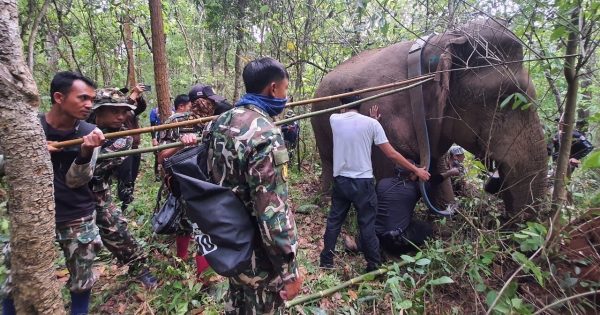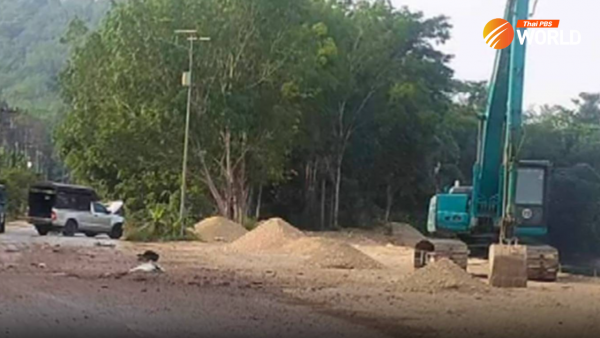GPS collars help track elephants approaching inhabited areas

GPS collars for elephants have proved to be helpful by enabling officials to know when the animals wander out of national parks and into inhabited areas,” said a senior National Parks, Wildlife, and Plant Conservation Department official today.
Supagit Vinitpornsawan explained that many people mistakenly believe the collars prevent elephants from leaving their habitats and entering agricultural areas to eat crops, but they only provide location monitoring.
The program to fit jumbos with GPS collars began in 2018, raising expectations that the technology would help prevent the animals from leaving the national parks.

“The collars help us track their location,” Supagit, who oversees a help centre for people affected by wildlife encounters, added. “When they wander into inhabited areas, we know immediately and can send a team to push them back,” he said.
Furthermore, when the elephants enter people’s plantations and consume crops, locals were wondering why officials were slow to respond.
“We have a limited number of officials, while the elephants break out of many areas,” he explained.
The director was giving the interview on Thai National Elephants Day today.






